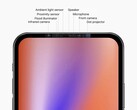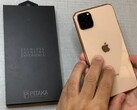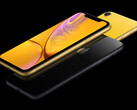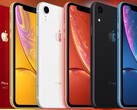Ming-Chi Kuo ist als Apple-Analyst bekannt, seine Einschätzungen finden regelmäßig international große Beachtung. Mit der jüngsten Prognose lässt Kuo wieder aufhorchen: Apple soll nach dem Kauf von Intels Modem-Sparte schon 2020 allen drei kommenden iPhones die 5G-Unterstützung spendieren. Wahrscheinlich wird Apple allerdings für die iPhone 2020-Serie noch auf die 5G-Modems von Qualcomm setzen, da die eigenen Chips erst 2021 serienreif sein düften.
Laut einem Bericht von Macrumors.com sieht Kuo konkrete Anhaltspunkte dafür, dass alle drei neuen iPhone-Modelle des Jahrgangs 2020, die Apple wahrscheinlich im nächsten Jahr in der zweiten Jahreshälfte vorstellen wird, bereits 5G unterstützen werden. Der Analyst begründet seine Annahmen unter anderem damit, dass Apple nach der Übernahme des Intel-Modemgeschäfts mehr eigene Ressourcen für die Entwicklung von 5G fähigen iPhones habe.
Zudem rechnet Kuo damit, dass die Preise für 5G-Smartphones mit Android in H2/2020 auf Preise zwischen 249 und 349 US-Dollar sinken werden. Die günstigen 5G-Handys dürften gemäß Kuo allerdings wahrscheinlich nur Frequenzbändern unter 6 GHz unterstützten, während Apple seine im Vergleich dazu höherpreisigen iPhones 2020 auch im Millimeter-Wellenlängenbereich (mmWave) funken lassen wird.
Kuo hält es allerdings auch für möglich, dass Apple ein spezielles Budget-iPhone mit 5G im nächsten Jahr launchen könnte, das im 5G-Netz lediglich auf den Frequenzen unter 6 GHz arbeitet und dafür im Vergleich zu den drei 5G-iPhone mit mmWave-Unterstützung deutlich günstiger sein könnte.
Macrumors.com zitiert Ming-Chi Kuo wie folgt:
We now believe that all three new 2H20 iPhone models will support 5G for the following reasons. (1) Apple has more resource for developing the 5G iPhone after the acquisition of Intel baseband business. (2) We expect that the prices of 5G Android smartphones will decline to $249-349 USD in 2H20. We believe that 5G Android smartphones, which will be sold at $249-349 USD, will only support Sub-6GHz. But the key is that consumers will think that 5G is the necessary function in 2H20. Therefore, iPhone models which will be sold at higher prices have to support 5G for winning more subsidies from mobile operators and consumers' purchase intention. (3) Boosting 5G developments could benefit Apple's AR ecosystem.
Apple may have the intention to launch the 5G iPhone, which only supports Sub-6GHz, to gain market share by lowering the cost/price for markets which only support Sub-6GHz (e.g., Chinese market). However, 5G iPhone, which only supports Sub-6GHz and the version which supports mmWave & Sub-6GHz are regarded as different projects even though they share the same form factor design.





















